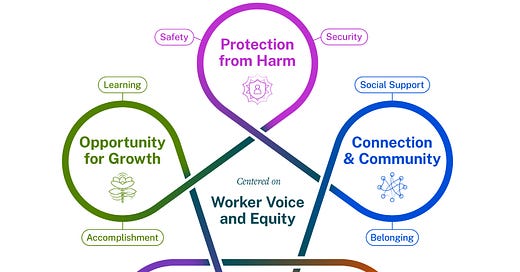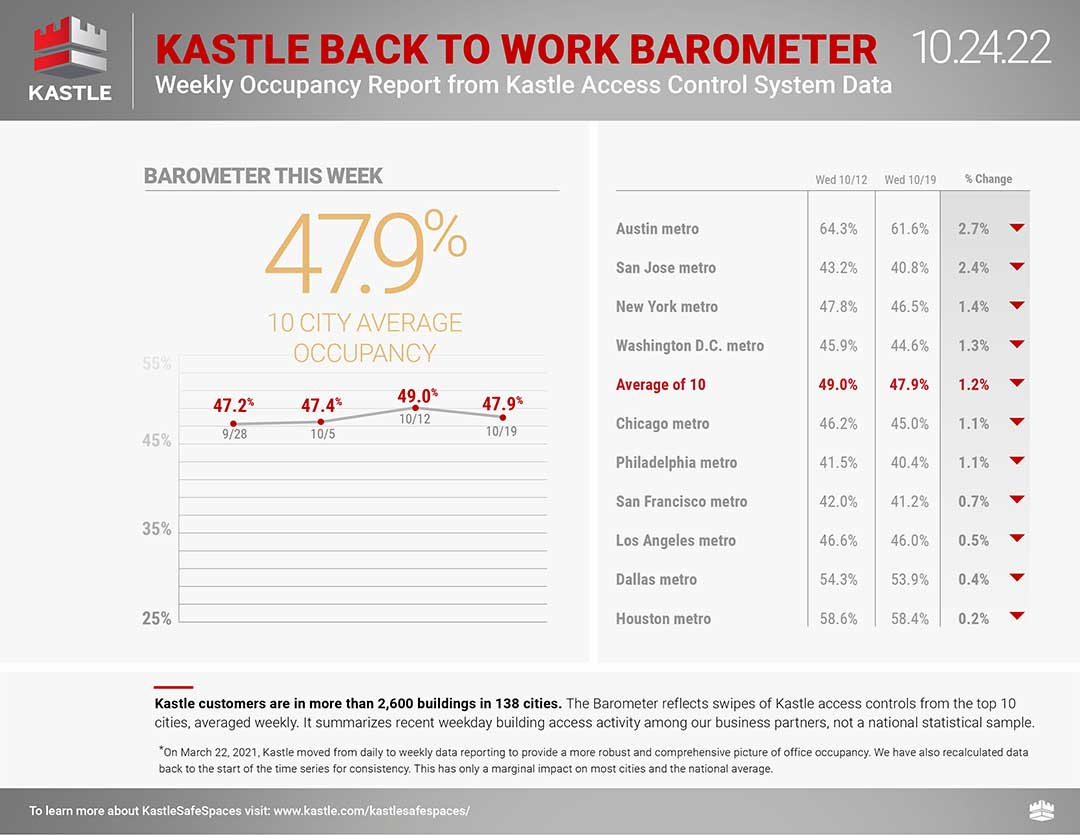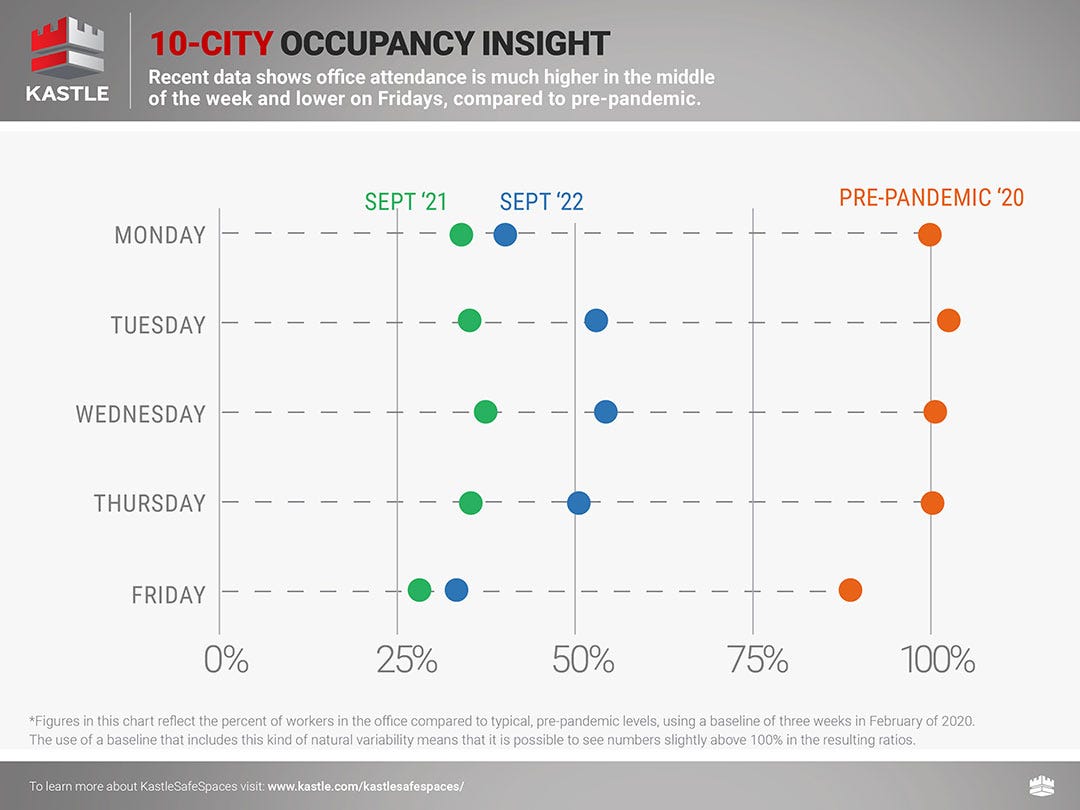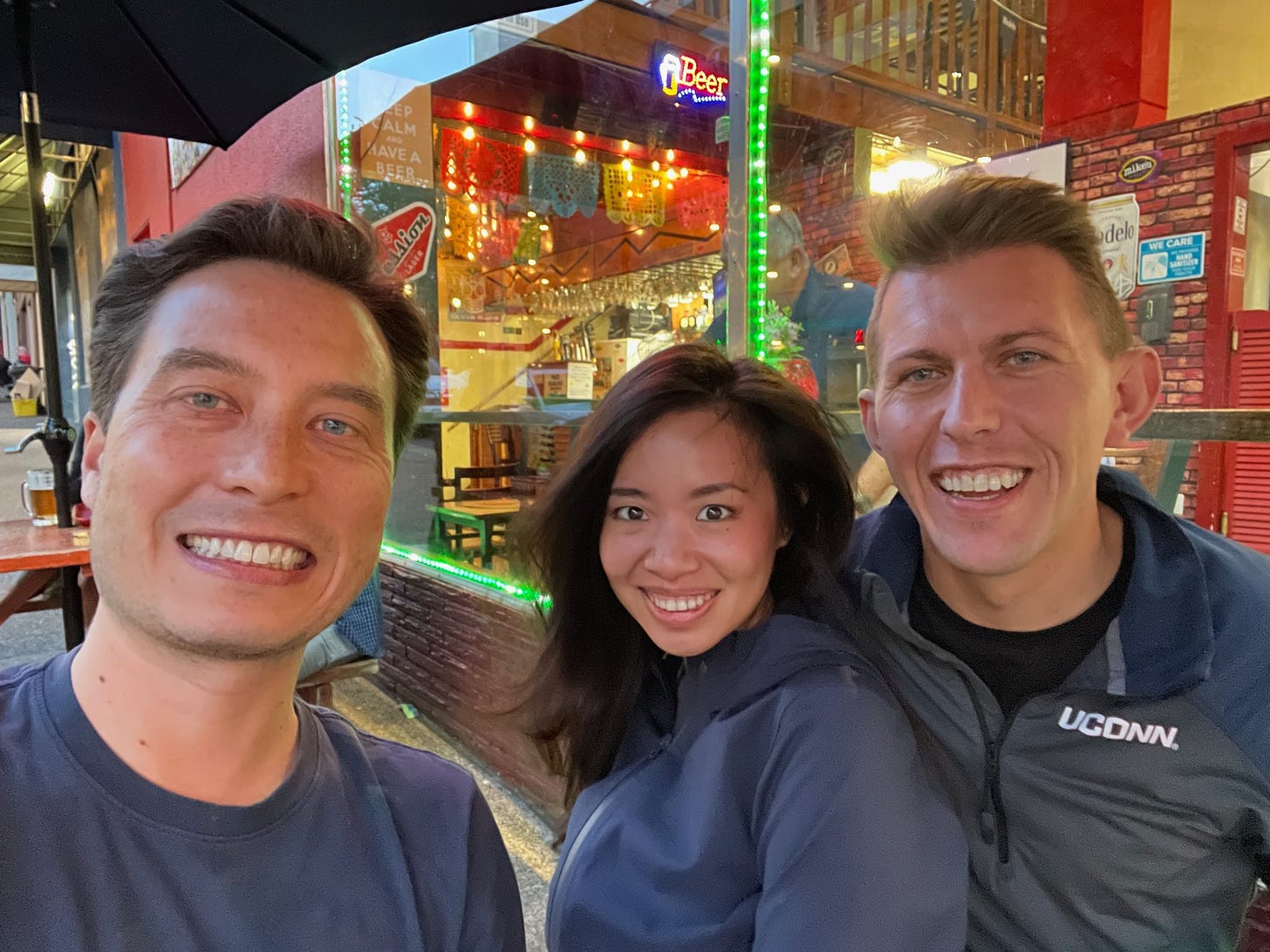October 29th, 2022: Hey friends, this was a great week. One of my cousins was in town for a couple of days, I volunteered at a soup kitchen on Wednesday, and I spent yesterday doing a silent 12-hour walk, wandering 24 miles around Austin without any devices. It was a great day, hoping to share a bit more next week.
This issue is sponsored by RemoteBase
Remote Worker or Digital Nomad? Get Curated Accommodation Deals, For Free! 🟠
📥RemoteBase.co shares hand-picked long-stay accommodation deals, available with HUGE discounts! Get them all via email 2x/month.
Before we dive in, I had two podcast episodes come out this week:
I recorded an epic 2-hour podcast with Jonny Miller who’s been one of my closest friends on a similar path over these last four years. People are saying it’s very good and you can listen or watch to see for yourself. He’s also closing enrollment today for his Nervous System Mastery course (10% off with code Boundless here)
A podcast with Andy Schoonover, CEO of Crowdhealth. We talked a bit about healthcare but also his path from MBA to search fund which was something I didn’t know much about before the conversation. You can listen here.
#1 Doing World-Class Work
If you read one essay this week it should be Richard Hamming’s talk from 1986: “You and Your Research”:
The talk is ostensibly about doing great work in science but also in any field:
Now, why is this talk important? I think it is important because, as far as I know, each of you has one life to live. Even if you believe in reincarnation it doesn't do you any good from one life to the next! Why shouldn't you do significant things in this one life, however you define significant?
…
Our society frowns on people who set out to do really good work. You're not supposed to; luck is supposed to descend on you and you do great things by chance. Well, that's a kind of dumb thing to say. I say, why shouldn't you set out to do something significant? You don't have to tell other people, but shouldn't you say to yourself, ``Yes, I would like to do something significant.''
He goes on to outline what he’s learned doing significant work himself and observing other brilliant scientists doing work around him. He argued that everything is dependent on working on important problems and one way to figure out if it’s an important problem is to see if there is an attack.
If you do not work on an important problem, it's unlikely you'll do important work…
By important I mean guaranteed a Nobel Prize and any sum of money you want to mention. We didn't work on (1) time travel, (2) teleportation, and (3) antigravity. They are not important problems because we do not have an attack. It's not the consequence that makes a problem important, it is that you have a reasonable attack. That is what makes a problem important. When I say that most scientists don't work on important problems, I mean it in that sense.
On top of it, he argued that many people don’t do a good job of “selling” their ideas:
…it is not sufficient to do a job, you have to sell it. `Selling' to a scientist is an awkward thing to do. It's very ugly; you shouldn't have to do it. The world is supposed to be waiting, and when you do something great, they should rush out and welcome it. But the fact is everyone is busy with their own work. You must present it so well that they will set aside what they are doing, look at what you've done, read it, and come back and say, ``Yes, that was good.'' I suggest that when you open a journal, as you turn the pages, you ask why you read some articles and not others. You had better write your report so when it is published in the Physical Review, or wherever else you want it, as the readers are turning the pages they won't just turn your pages but they will stop and read yours. If they don't stop and read it, you won't get credit.
I think this is also a decent argument for writing and sharing your ideas online. Bell Labs is no longer a closed ecosystem you needed special credentials to access. We are all part of Bell Labs, it’s just up to us whether we want to attempt to explore the ideas that matter to us or not.
One way you might test to see if that excites you is to reflect on his comparison of research and management:
If you want to be a great researcher, you won't make it being president of the company…
The day your vision, what you think needs to be done, is bigger than what you can do single-handedly, then you have to move toward management. And the bigger the vision is, the farther in management you have to go. If you have a vision of what the whole laboratory should be, or the whole Bell System, you have to get there to make it happen. You can't make it happen from the bottom very easily.
For me, I loved being a researcher. That’s why I became less motivated the higher I climbed in consulting and have had so much fun working solo on this new path.
The whole essay is worth reading or you can read my full tweet thread summary.
#2 Revisiting Remote Trends
After some energetic attempts at shifting the narrative toward a “return to office” future, or even calling it “return to work,” people are continuing to vote with their feet.
Here is the latest data from Kastle Systems showing a pretty steady occupancy rate of slightly below 50% of pre-pandemic levels.
But I think this chart does a far better job of showing what’s really happening:
It looks like Fridays are becoming a default to remote days (something that was already happening a bit prior to 2020) and Tuesday-Thursday are the days people are coming in (but only slightly over 50%!).
#3 First-Year Freelance Reflections
I love reflections on going solo and Andrew Bartholemew’s first-year freelancing reflections were one of the best I’ve read.
Some highlights:
It’s totally fine to charge based on time “My goal is not to maximize income but to do interesting work. Often simply charging for my time is the best way for a client to give me access to the good stuff.”
Agree! Especially at first, it is more useful to find your way to interesting work than high-priced work. Don’t worry about maxxing on high-value project-based pricing.
“Find fellow travelers, then resist jealousy”
Another powerful one. Jealousy/Envy is probably inevitable at some point but you ultimately need to shrink your scope of possible moves to an n=1 experiment zone. Seeing other people’s approaches is useful for ideas but not useful for creating your own identity.
“Have a story, but don’t take it too seriously”
I wrote about this last week. Cover stories are useful but often inadequate, sometimes forever.
“Indie consulting feels way less risky than I expected”
Many. Such. Cases. The longer you spend working for someone else the harder it is to remember the drive and determination you had to got you into that field in the first place. Those kinds of things come back quickly when going solo.
#4 Helsinki Bus Station
I stumbled upon this talk, titled “The Helsinki Bus Station” via Nat Eliason’s essay on the impact of AI on online writing.
The essay is about the Helsinki bus station and how most of the buses stay on the same path but start diverging as they exit the city. His argument is that too many people “get off the bus” in their work, and fail to see their own unique perspective emerge.
His point is, “Stay on the bus. Stay on the f*cking bus” in our creative work.
Start with things we like., maybe copy them at first, but learn to find our own voice along the way. Just keep going:
And so, if your heart is set on 8x10 platinum landscapes in misty southern terrains, work your way through those who inspire you, ride their bus route and damn those who would say you are merely repeating what has been done before. Wait for the months and years to pass and soon your differences will begin to appear with clarity and intelligence, when your originality will become visible, even the works from those very first years of trepidation when everything you did seemed so done before.
We can do a whole lot of things in art, become ten different artists, but if we do that, there is great danger that we will communicate very little in the end. I say ride the bus of your dreams and stay the course.
It’s a good essay and also a theme that popped up in Jonny and my conversation on the podcast this week.
#5 Medicalizing Work?
The Surgeon General just released a report with the following header:
“Our workplaces play a significant role in our lives.”
Followed by these three data points:
76% of U.S. workers reported at least one symptom of a mental health condition.
84% of respondents said their workplace conditions had contributed to at least one mental health challenge.
81% of workers reported that they will be looking for workplaces that support mental health in the future
Over the last twenty years, we have seen our conception of work shift radically from something closer to being a necessary evil to something that more people expect to meet most of our human needs.
Here is the framework they suggest that companies should be optimizing around:
Notice anything missing from this?
INCOME!
I will not argue that workplaces should not prioritize mental health. I think this is table stakes for most companies..
What I would say is that is that this is dangerous territory: conception of what workplaces should be doing for people is likely far beyond what they will be able to pull off.
Just take a look at the intro from the Surgeon General:1
The pandemic has presented us with an opportunity to rethink how we work. We have the power to make workplaces engines for mental health and well-being. Doing so will require organizations to rethink how they protect workers from harm, foster a sense of connection among workers, show them that they matter, make space for their lives outside work, and support their long-term professional growth. This may not be easy. But it will be worth it, because the benefits will accrue to both workers and organizations. A healthy workforce is the foundation for thriving organizations and a healthy community
That’s a lot! I sense many of these, especially long-term professional growth, are incompatible with our current business and labor markets.
The truth is that as our work has become more atomized, injected with technology, and hyper-specialized, it has put more and more pressure on individuals to be the owners of their own learning, careers, and job changes if they want continued personal and income growth. As Tyler Cowen said nearly 10 years ago (!), average is over.
In previous generations, this happened by accident in jobs and companies at the margins but I don’t think it’s a good career strategy to expect all the things the report outlines from our jobs.
Unfortunately, personal growth at work is often downstream of growth rates and profit margins. To expect otherwise is setting many people up to be disappointed.
#6 Building A Second Brain
I recorded a short video review of Tiago Forte’s book Building A Second Brain.
I got to spend a little time with him in Portland earlier this year and see him give a beautiful keynote on his book.
It was amazing to see how excited he was about his book launch, his current progress on his journey, and also how far he’s come since first encountering him in 2018.
One of the cool things about this journey is seeing people “make it” which I define as a state when someone knows they want to keep going indefinitely. Usually, the economic upsides are a way to make that path more interesting.
So many people pursue these paths just because it pains them too much to follow the default path. Seeing people like Tiago crushing it (and more importantly, still enjoying it), is very inspiring to me.
ICYMI - last week, my thoughts on the stories you need after leaving your job.
Thanks For Reading!
I am focused on building a life around exploring ideas, connecting and helping people, and writing. If you’d like to support my journey, the best ways are to:
Buy or listen to my book, The Pathless Path
Purchase one of my courses on freelancing or reinventing your path
Subscribe to my podcast and leave a review
Support this newsletter through an ongoing micro-donation with 68 others
Subscribed
In addition, I recommend all of the following services (affiliate links): Riverside.fm for HD podcasting, Transistor for podcast hosting, Podia or Teachable for courses, Skystra for WordPress Hosting, and Circle for running a community
A reminder: I don’t check unsubscribe alerts and never look at my subscriber list. So if you feel like unsubscribing, you can do so below.










Interesting chart you shared around optimizing work for people. In the business book club I’m in we had a really interesting discussion around creating golden handcuffs for independent contractors since most of the members run their business through contract labor instead of employees. Even though there are some legal safeguards around this my experience is that too many employers of independent contractors are expecting full time work for very part time wages and no benefits. It would be great to see more of a safety net develop for “fractional” workers.